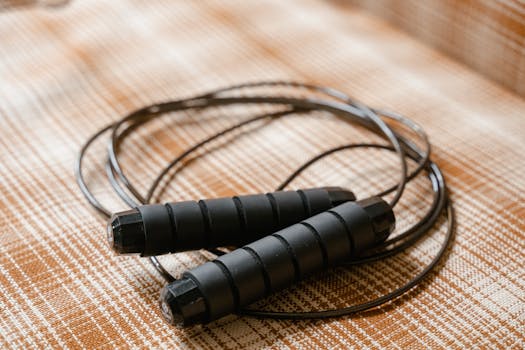Navigating Menopause Anger Toward Partner: A Harmonious Path
Nov 22, 2024
Menopause is a natural transition that every woman experiences, but it can also be a time of emotional upheaval. As hormones fluctuate, it's not uncommon for women to experience mood swings, irritability, and even anger toward their partners. If you find yourself feeling angry at your partner during this phase, you're not alone. However, it's essential to address these feelings in a healthy and constructive manner to maintain a harmonious relationship.
Understanding the Root Causes
Hormonal Imbalances
One of the primary reasons for anger during menopause is the fluctuation of hormones, particularly estrogen and progesterone. These hormonal changes can affect mood, sleep patterns, and overall well-being, leading to increased irritability and frustration. It's important to recognize that these emotional responses are not personal but rather a natural consequence of the body's transition.
Physical Discomforts
Menopause can also bring about various physical symptoms, such as hot flashes, night sweats, and vaginal dryness. These discomforts can contribute to feelings of anger and irritability, as they can disrupt daily routines and quality of life. Addressing these physical challenges through lifestyle changes, supplements, or medical interventions can help alleviate some of the emotional strain.
Relationship Dynamics
In some cases, anger toward a partner during menopause may stem from underlying relationship issues or communication breakdowns. It's essential to reflect on the dynamics of your relationship and address any unresolved conflicts or resentments that may be exacerbating the situation.
Strategies for Navigating Anger and Fostering Understanding
Open and Honest Communication
Effective communication is key to navigating the emotional challenges of menopause. Share your feelings and experiences with your partner in a calm and non-confrontational manner. Help them understand what you're going through and how they can support you during this transition. Encourage them to ask questions and express their own concerns or frustrations, fostering an environment of mutual understanding.
Seek Professional Support
If you're struggling to manage your emotions or if anger is significantly impacting your relationship, consider seeking professional help. A therapist or counselor can provide valuable guidance and coping strategies, helping you and your partner navigate this phase with greater ease and empathy. They can also identify any underlying issues that may be contributing to the anger and provide tools for addressing them.
Practice Self-Care
Engaging in self-care activities can help alleviate stress and promote emotional well-being during menopause. Explore self-care strategies such as exercise, mindfulness practices, or engaging in hobbies you enjoy. When you prioritize your physical and mental health, you may find it easier to manage anger and maintain a more positive outlook.
Explore Lifestyle Modifications
Certain lifestyle changes can help mitigate the physical and emotional symptoms of menopause. Consider adopting a menopause-friendly diet rich in nutrients that support hormonal balance, and engage in regular physical activity to promote overall well-being. Additionally, stress management techniques like deep breathing exercises or yoga can help you cope with anger and irritability more effectively.
Fostering a Supportive Partnership
Menopause is a journey that both partners navigate together. While it's natural to experience anger and frustration during this transition, it's crucial to approach the situation with empathy and understanding. Encourage your partner to educate themselves about menopause and its potential emotional impacts, so they can better support you through this phase.

Create a Safe Space for Vulnerability
Establish an environment where both of you feel comfortable expressing your feelings without fear of judgment or criticism. This safe space can foster open and honest communication, allowing you to work through challenges together as a team.
Celebrate Small Victories
Menopause can be a challenging journey, but it's important to acknowledge and celebrate the small victories along the way. Whether it's a day without hot flashes or a week of improved mood, recognize and appreciate these milestones together. This positive reinforcement can strengthen your bond and provide motivation to continue navigating this transition with resilience.
Seeking Support for Partners
While menopause is a personal journey for women, it can also significantly impact their partners. It's essential for partners to educate themselves about the emotional and physical changes associated with menopause and to provide understanding and support throughout this transition.
Educate Yourself
Take the time to learn about the various symptoms and emotional challenges associated with menopause. Understanding the root causes of your partner's experiences can foster empathy and help you better support them during this phase.
Listen with Compassion
Create a safe space for your partner to share their feelings and experiences without judgment or dismissal. Actively listen and validate their concerns, offering reassurance and support when needed.
Share the Load
Menopause can be physically and emotionally draining. Offer to take on additional household responsibilities or tasks to alleviate some of the stress and burden on your partner. This simple gesture can go a long way in showing your support and understanding.
Seek Professional Guidance
If you're struggling to navigate the challenges of menopause as a couple, consider seeking professional guidance from a therapist or counselor. They can provide valuable insights and strategies to help you communicate effectively and strengthen your partnership during this transition.
Conclusion
Anger toward your partner during menopause is a common experience, but it doesn't have to strain your relationship. By understanding the root causes, practicing open communication, seeking professional support when needed, and fostering a supportive partnership, you can navigate this phase with greater harmony and understanding. Remember, Tidalflow's AI-powered personal training solutions offer personalized guidance and support tailored to your unique needs, including strategies for managing the emotional challenges of menopause. Embrace this transition as an opportunity to strengthen your bond and emerge with a deeper appreciation for one another.
Take the first step towards a harmonious menopause journey by exploring Tidalflow's comprehensive resources and personalized coaching plans. Our AI-driven approach ensures you receive tailored strategies and support to navigate this phase with confidence and resilience.
Disclaimer: This article is for informational purposes only and does not substitute professional medical advice. Consult a healthcare provider for personalized recommendations.
You should not have to do it all on your own













